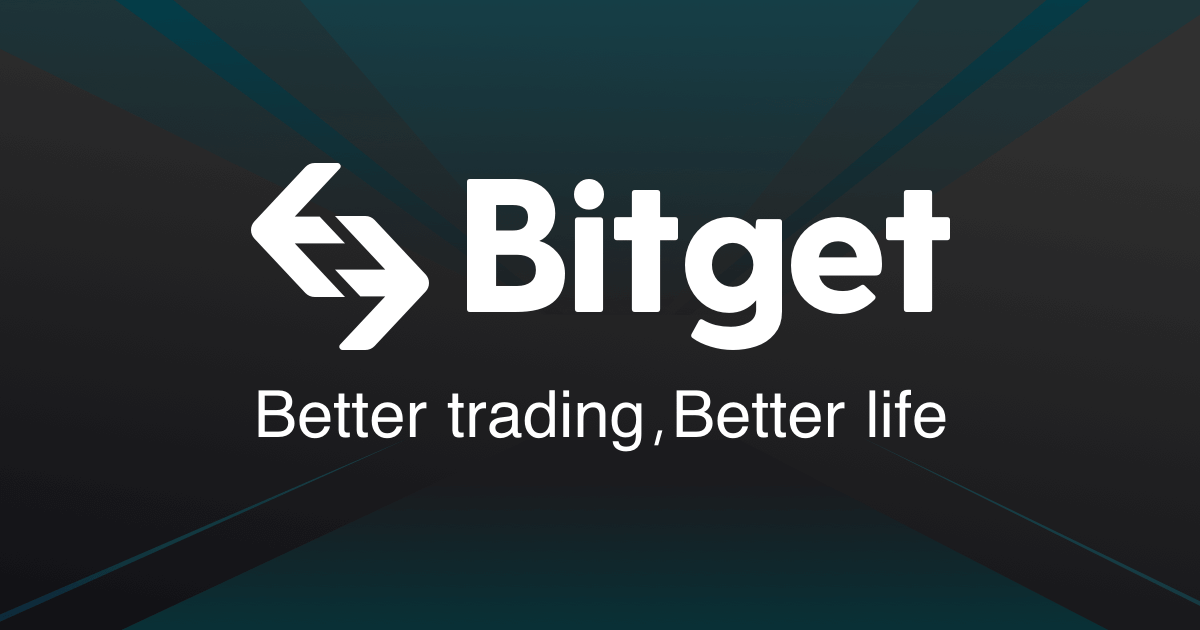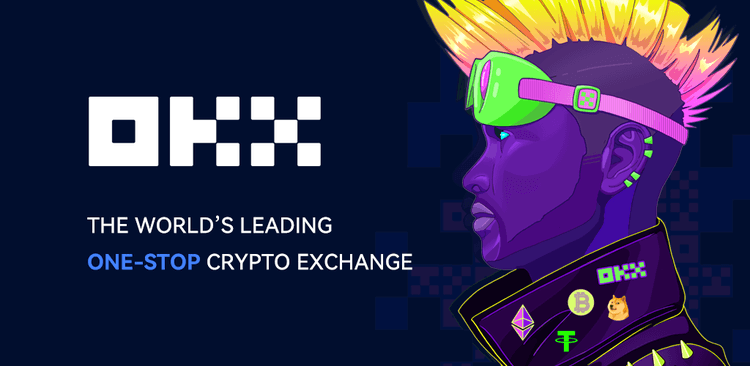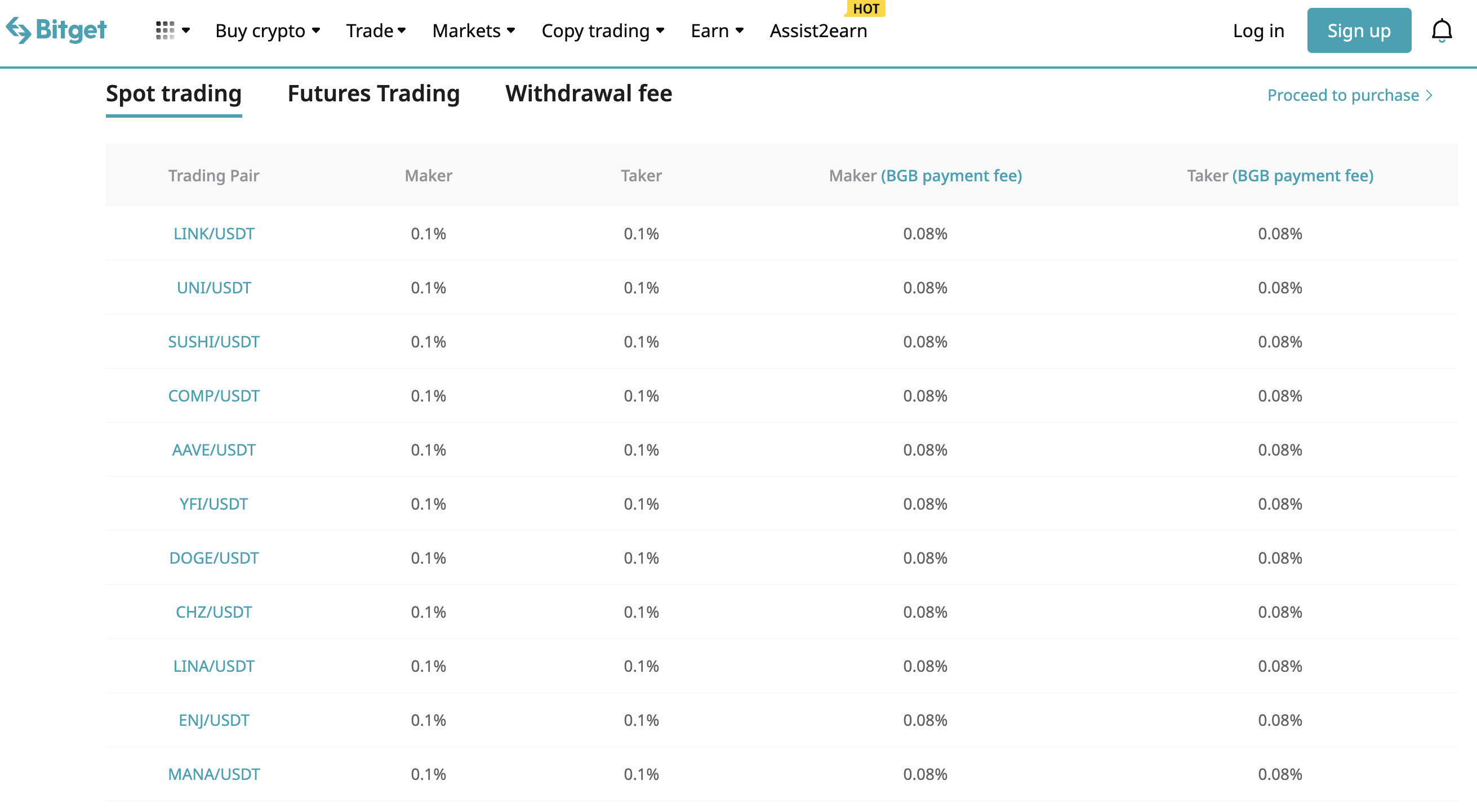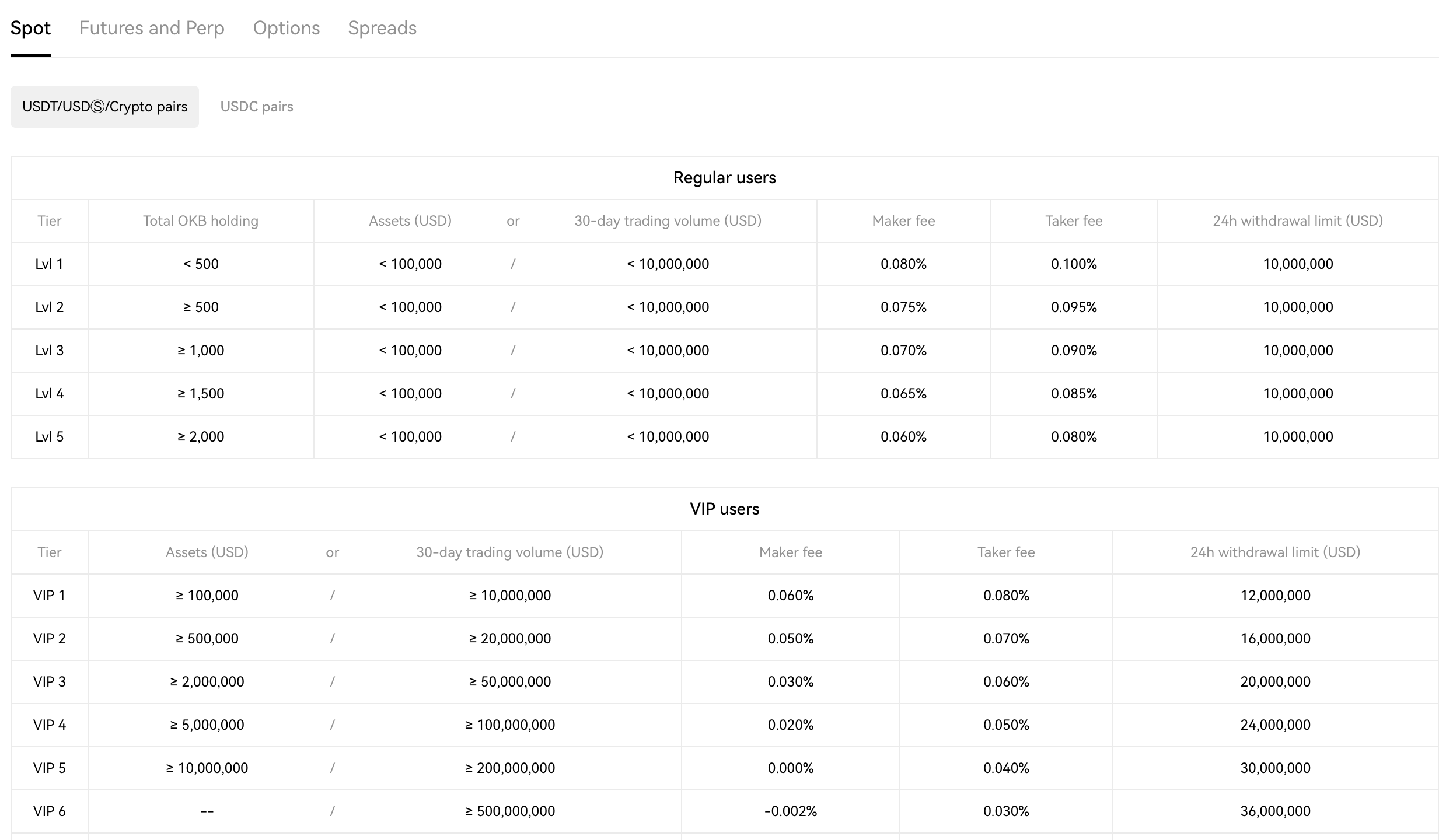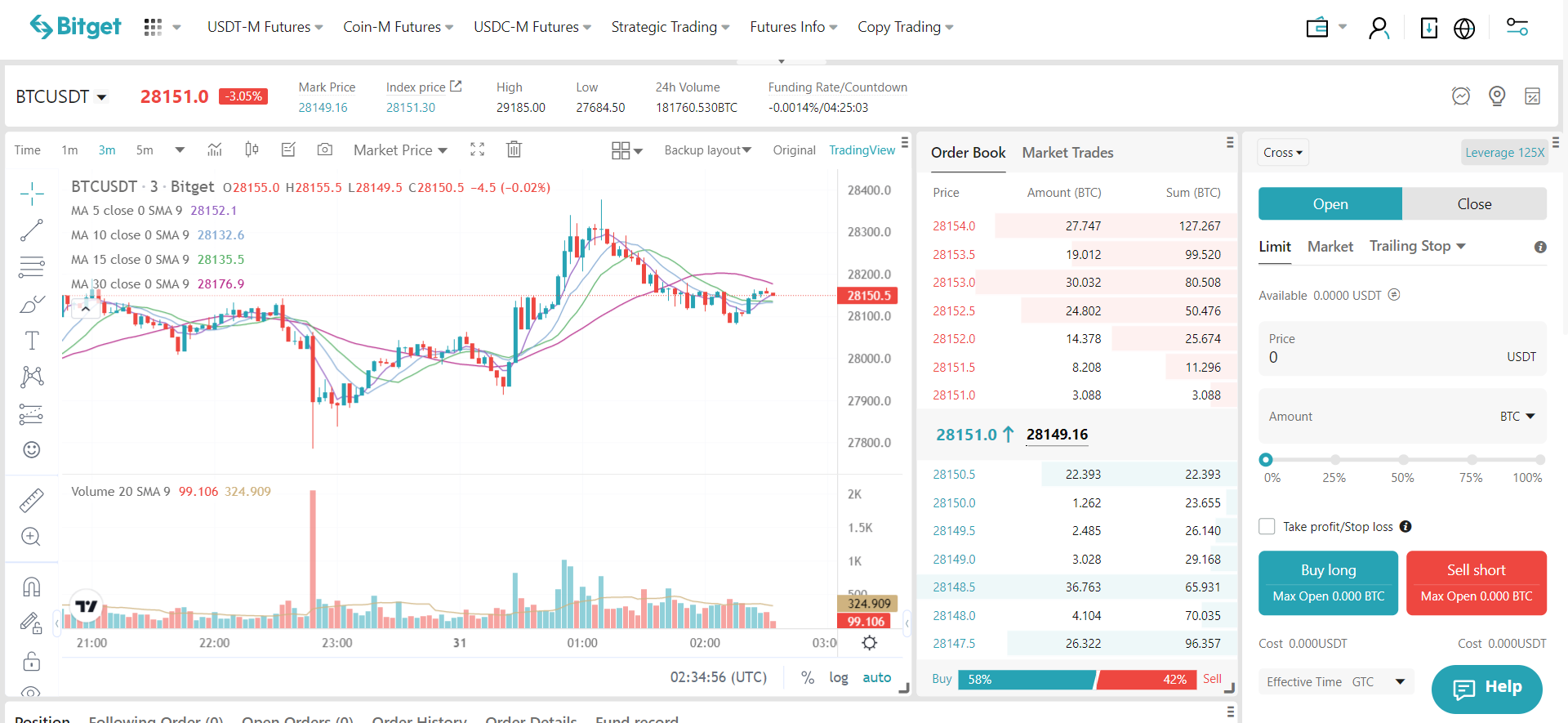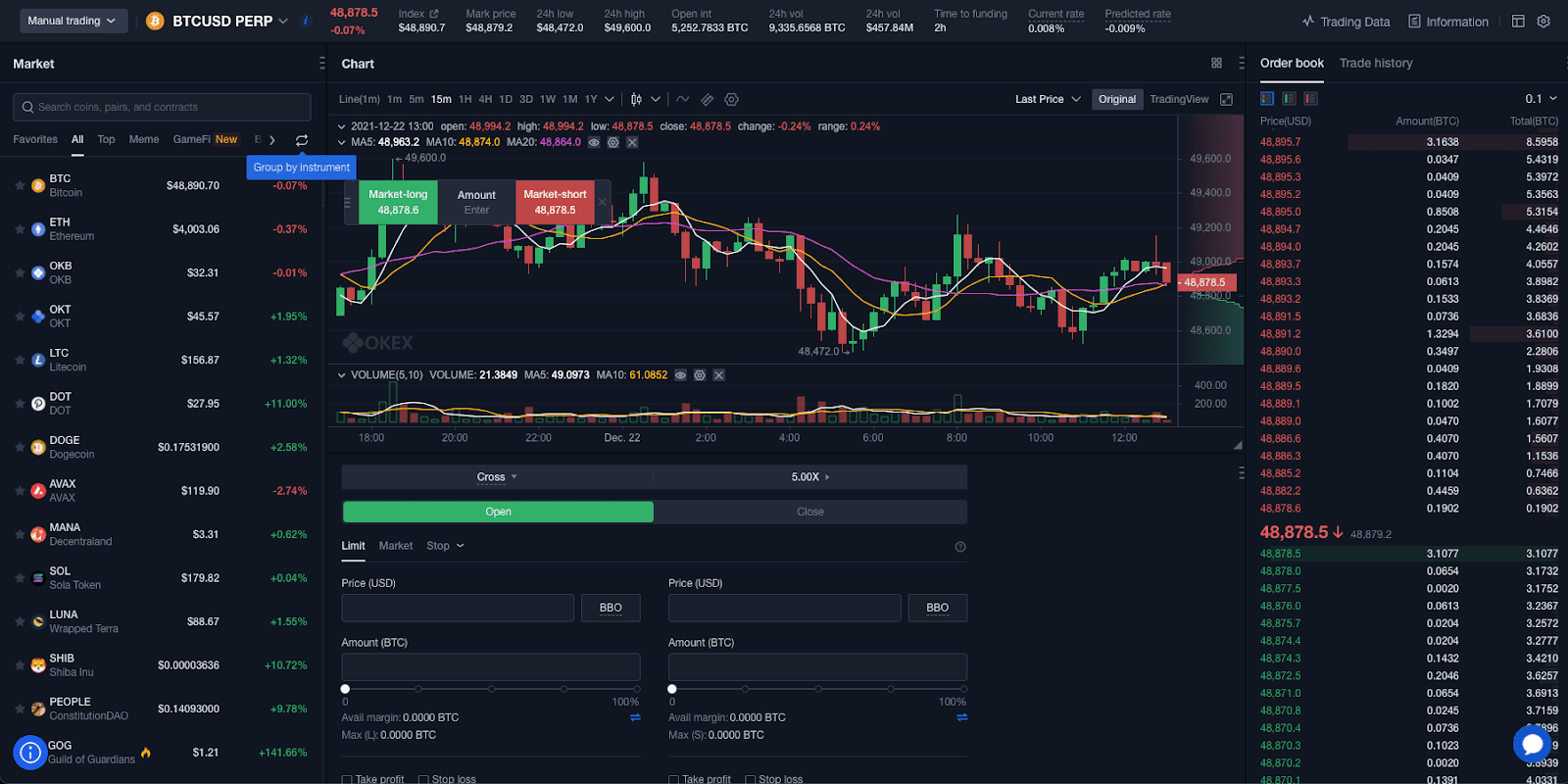As a crypto enthusiast, you’ve probably been down this road before, haven’t you?
We’re always faced with the big question: “Which crypto future trading platform should I use?”
Now, you’re here, contemplating between Bitget and OKX.
But don’t worry, you’re in the right place! Let me guide you on this thrilling ride to make an informed decision in 2023.
In the following paragraphs, you’ll get to unravel the pros and cons of each platform, so hold tight as we dive deeper and find out which of these two titans – Bitget or OKX – deserves your attention and why.
Let’s get started, shall we?
Bitget vs OKX: At A Glance Comparison
So, let’s start by comparing Bitget and OKX, head-to-head.
Starting with Bitget, it offers a variety of features including spot trading, Futures trading, and copy trading.
On the flip side, OKX shines with a more comprehensive suite of offerings such as spot trading, Futures, Options, perpetual swaps, and even DeFi services.
You might be thinking, “OKX seems to have more features, so it must be better, right?”
Well, it’s not always that simple. Bitget focuses more on simplicity and user-friendliness, which might be a game-changer for beginners.
When it comes to the user interface, Bitget takes a minimalist approach, while OKX goes for a more detailed dashboard which might be overwhelming for a novice but a treasure trove for experienced traders.
At this point, you might ask, “Which one should I go for then?”
Well, here’s the thing. If you are just starting your journey into crypto trading, Bitget’s simplicity might be your best bet.
However, for more seasoned traders looking for a wide range of trading options and features, OKX’s diverse offerings might be a more fitting choice.
Bitget vs OKX: Trading Markets, Products & Leverage Offered
On the one hand, Bitget offers spot trading for a variety of cryptocurrencies and leveraged trading up to 100x for Futures contracts.
But wait, there’s more. Bitget also features copy trading, allowing beginners to emulate the strategies of experienced traders.
On the other hand, OKX doesn’t hold back either.
It offers a wider range of trading markets including spot trading, Futures, Options, perpetual swaps, and even DeFi services.
Furthermore, it provides higher leverage, going up to 125x for Futures contracts.
At this point, you might be wondering, “Which platform offers better trading opportunities?”
To conclude, if you’re a beginner, you might appreciate the learning opportunities provided by Bitget’s copy trading feature. But for those seeking diverse trading options and higher leverage, OKX is the clear winner.
Bitget vs OKX: Supported Cryptocurrencies
Bitget supports an array of cryptocurrencies including Bitcoin (BTC), Ethereum (ETH), Litecoin (LTC), and Ripple (XRP) among others.
And here’s the kicker, Bitget is always looking to expand its offerings.
Just like Bitget, OKX supports major cryptocurrencies like BTC, ETH, LTC, and XRP. But guess what? OKX supports a whopping 400+ cryptocurrencies!
That’s a serious smorgasbord of choices for any trader.
Well, if having a wide variety of cryptocurrencies to trade is high on your list, then OKX is undoubtedly the stronger contender here.
They simply offer a broader spectrum of cryptocurrencies.
Bitget vs OKX: Trading Fee & Deposit/Withdrawal Fee Compared
This is where it gets interesting. Bitget operates on a maker-taker fee model. Makers are charged a fee of 0.10%, while takers are also charged a fee of 0.10%.
You can get a 20% discount if you choose to pay these fees in $BGB which is the native token of the exchange.
Now here’s something you need to know, Bitget doesn’t charge any deposit fees, but withdrawal fees vary based on the cryptocurrency.
OKX uses a tiered fee structure based on 30-day trading volume and holding amount. The more you trade, the lower your fees.
Maker fees range from 0.080% to a rebate of 0.005% if you have enough trading volume, and taker fees from 0.100% to 0.02%.
Just like Bitget, OKX charges no deposit fees, but withdrawal fees are crypto-specific.
So, who’s got the upper hand in this regard? If you are planning to use $BGB to pay your fees, consider using Bitget. If not, OKX should be your choice.
Bitget vs OKX: Order Types
Alright, let’s now steer this conversation toward order types. As a trader, you want to have a variety of options at your disposal. Let’s see what these platforms offer.
With Bitget, you’ve got an arsenal of order types at your disposal. From Limit and Market orders to Stop and Trailing Stop orders, Bitget covers all the bases.
But guess what? They also provide advanced order types like Fill or Kill (FOK) and Immediate or Cancel (IOC).
On the flip side, OKX also offers a wide range of order types. Market, Limit, Stop, and Trail orders are all part of the package.
But it doesn’t stop there. OKX also includes advanced order types such as Iceberg and Time-weighted Average Price (TWAP).
Now, who takes the cake in this aspect? OKX edges out with its offering of Iceberg and TWAP orders that can be crucial for large-volume traders.
Bitget vs OKX: KYC Requirements & KYC Limits
OK, let’s shift our focus to something that you might not think about every day, but is crucially important: KYC requirements and limits.
Now, if you’re on Bitget, you’ll notice that there is no tiered KYC system.
What does this mean? Simply put, KYC is mandatory and every user has to go through the same process to be able to use all the features of the exchange.
On the other hand, we have OKX, which also does not follow a tiered KYC structure. Even though it has a Level 1 and 2, it requires you to complete both levels mandatorily.
Given these details, who’s the winner in the KYC round?
Both exchanges have mandatory KYC so in this regard, it is a tie.
Bitget vs OKX: Deposits & Withdrawal Options
Ready for the next round? Let’s dive right into deposit and withdrawal options.
Bitget primarily supports cryptocurrency deposits and withdrawals. But here’s the deal: they also allow fiat transactions through third-party services. What’s the catch?
You may need to contend with extra fees and processing times, depending on the third-party service you choose.
OKX goes the extra mile, offering both crypto and fiat transactions directly. You can deposit and withdraw in a variety of cryptocurrencies, or use their P2P trading platform for fiat transactions.
The interesting part?
You’re likely to find a wider range of fiat options here than on Bitget.
So who’s taking home the trophy in this round?
If you’re keen on a wider array of fiat options and direct transactions, OKX is your champion. But if you mostly deal in crypto and occasionally need fiat transactions, Bitget could work just fine.
Bitget vs OKX: Trading & Platform Experience Comparison
Bitget has made a name for itself with a platform that’s as intuitive as it is efficient. It has a clean interface, with advanced charting tools and features that make it accessible to both beginners and seasoned traders.
But that’s not all.
Bitget also offers a mobile application that brings all these features to your fingertips, making on-the-go trading a breeze.
OKX aims to be more than just a cryptocurrency exchange—it aspires to be a comprehensive digital asset trading platform.
It has a wide range of features, from spot trading to Futures contracts, margin trading, and even DeFi services.
While the array of options can be overwhelming to a beginner, experienced traders will find a wealth of resources and tools at their disposal.
So, who’s walking away with the gold?
If you’re a beginner or someone who values simplicity and ease of use, Bitget has the edge.
However, for seasoned traders looking for a comprehensive suite of trading features and services, OKX stands as the clear winner. To know more about the exchange, you can check this guide how to trade futures on OKX.
Bitget vs OKX: Customer Support
Bitget offers several support channels, including email, live chat, and an extensive FAQ section on their website.
What’s more, is that they promise 24/7 support, so no matter when you hit a snag, you’ve got help on hand.
They also have a vibrant community on social media platforms, where you can find quick help and updates.
OKX, on the other hand, also provides round-the-clock support. But they go a step further by offering phone support, which is a rarity in the crypto exchange world.
Besides, they also maintain a comprehensive FAQ section, an active blog, and a strong social media presence to ensure users stay informed and can resolve minor issues themselves.
So, who wins this round? While Bitget offers solid customer support, the inclusion of phone support gives OKX a slight edge.
Bitget vs OKX: Security Features
The question we need to ask is: How safe are Bitget and OKX?
Bitget has been pretty clear about its commitment to user security.
They’ve implemented measures such as cold storage for assets, two-factor authentication (2FA), and encryption protocols to protect user data.
Bitget also conducts regular internal audits to ensure security compliance.
OKX is no slouch in the security department either. OKX employs a multi-signature withdrawal process, 2FA, and advanced risk management systems.
They even run a bug bounty program to incentivize the detection of potential security threats.
You’re probably thinking that’s impressive. Well, there’s more. OKX has a robust insurance fund to cover any losses from unexpected security breaches.
Comparing the two, it’s evident that both exchanges take security seriously. But the clear standout here is OKX.
Why? Their commitment to go above and beyond with measures like the bug bounty program and a solid insurance fund give users that extra layer of assurance.
Is Bitget Safe & Legal To Use?
Bitget operates within legal frameworks in the jurisdictions where it’s available. Indeed, they are registered in Singapore, a country known for its strict and effective financial regulations.
This should give users some confidence.
From a security standpoint, Bitget applies stringent measures including cold storage for digital assets, 2FA, and advanced encryption technologies.
They’re also known for running regular internal audits to maintain a secure trading environment.
But don’t make your decision just yet. We’ve got more to reveal about Bitget and OKX.
Is OKX Safe & Legal To Use?
OKX, like Bitget, operates within the legal boundaries of its jurisdiction. The platform is registered in Malta, a location that’s attractive to many crypto exchanges due to its advanced blockchain legislation.
On the safety front, OKX does not disappoint. It implements rigorous security measures, including cold storage, 2FA, and SSL encryption, and has a robust internal risk management system.
What’s more, it runs a bug bounty program inviting ethical hackers to find potential security vulnerabilities. This reinforces their security measures, wouldn’t you agree?
Additionally, OKX has an insurance fund in place, which is designed to cover losses from unforeseen circumstances.
Up next, we delve into why you might consider using both!
Bitget vs OKX Conclusion: Why not use both?
Bitget shines in areas like contract trading, beginner-friendly interface, and customer support, making it an excellent choice for newcomers dipping their toes into the world of crypto trading.
So, if you’re just starting, Bitget could be your go-to platform.
On the other hand, OKX outperforms with its wider array of supported cryptocurrencies, advanced trading options, and robust security features.
This makes OKX a preferred platform for seasoned traders seeking diversity and advanced trading tools.
Here’s the thing: why restrict yourself to just one?
Diversifying your trading platforms can open up opportunities and advantages unique to each.
So, consider using both Bitget and OKX. Start with Bitget to get the hang of crypto trading and graduate to OKX as you advance.
Learn how does Bitget & OKX stack up against the competition:

